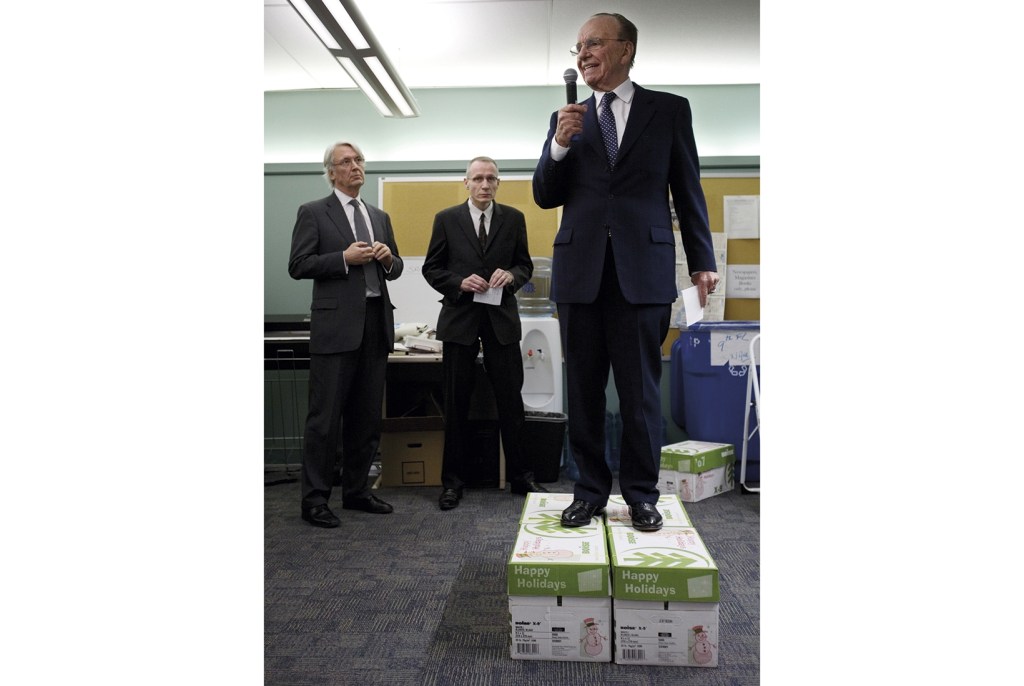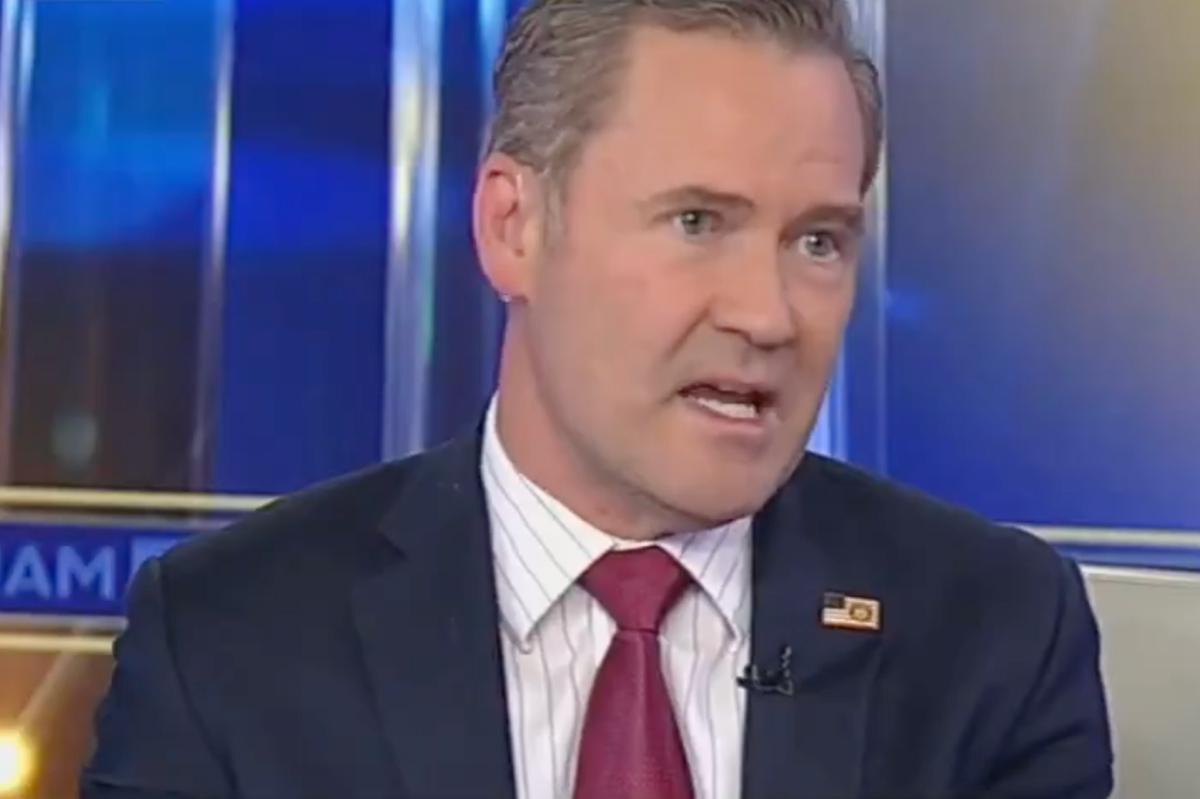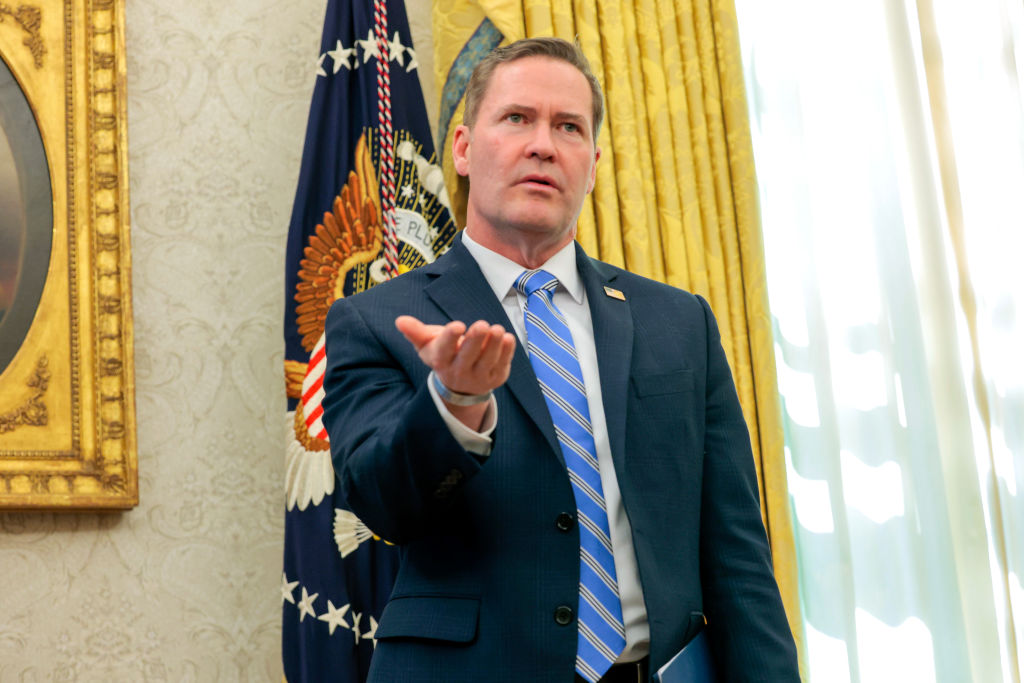I was astonished when Rupert Murdoch announced he was stepping down after seventy years as chairman of News Corp. He always told me he would be carried out of the building with his boots on.
At ninety-two he deserves a rest, but my experience of him was that he was at his most relaxed when working and quite anxious when having to be sociable. What surprised me most was that he has taken the title of “chairman emeritus.”
The expression that most sums up his attitude to life is: lower the lifeboat, I’m in
I remember that when he hired me as editor of the Sun he had just announced that Frank Giles was moving from editor of the Sunday Times to the new role of editor emeritus of the Sunday Times. Being a tabloid guy I had never heard the word “emeritus” so timidly asked what it meant. He replied, in his softly spoken Aussie accent, “It means he’s not the fucking editor of the Sunday Times.”
The departure of Rupert will mean change.
The inevitable appointment of Lachlan is bad news for the London arm (he has hardly visited here these last ten years) but good news for the shareholders. Were I working at the commercial disaster called TalkTV, I would be reaching out to GBNews to see if there were any jobs as teaboy; were I at Times Radio, I would be buying a tent to pitch outside my local JobCentre Plus.
It is only a matter of time before the print edition of the Sun is folded. The digital edition will be a commercial success but, in the switch, the personality will be lost. The Sun‘s days of power and glory will be gone forever.
So who is the Rupert I knew?
An inordinately clever and cunning guy. He worked very hard. He disliked Brussels because it got in the way of his corporate ambitions so it was suggested he should fly from New York to Brussels to sit next to the EU competitions chief. He took the plane first thing Tuesday, arrived just in time for the 7:30 p.m. dinner. Then four hours later he climbed back into his corporate jet and arrived back in Manhattan at 4 a.m. You can’t buy that ambition.
The expression that most sums up his attitude to life is: lower the lifeboat, I’m in. He would chuck anybody out. His kids, his wives, his executives.
Coupled with that, he has sacker’s remorse. After a good period of time he would always want to reach out to somebody he had fired. An engaging aspect of a quite dull personality.
He loved gossip but would never tell anybody his. He kept all commercial secrets close to his chest. It’s fascinating that in thirty years he never gave an interview explaining how it was much cheaper to use a satellite dish to receive TV signals than broadband.
Although close colleagues all say that the gray matter is still there, the reality is that he recognizes that, in the last twenty years, the power and commercial viability of media has declined. And with it has gone his ability to make money. So he has done the right thing and called it a day.
There will be many journalists out there, me included, who will always be grateful for the opportunities he gave us. The media will never see another Rupert.
This article was originally published on The Spectator’s UK website.

























